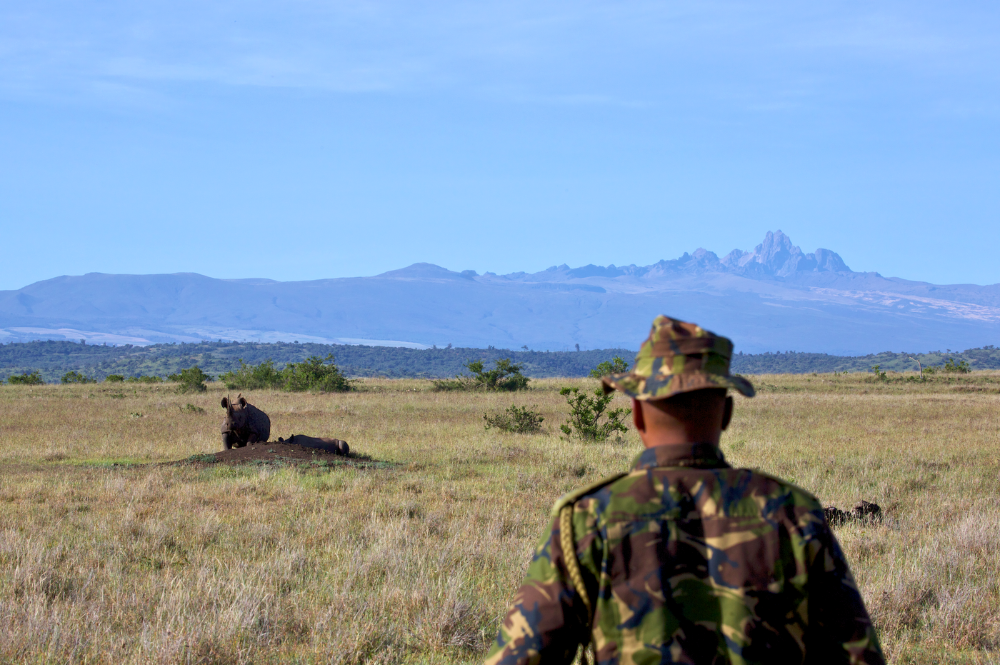Donate towards ForRangers this World Ranger Day
Scrolling through various insurance providers – whether it be for travel, health, or business – in search of the best option may feel like an incredibly dull use of one’s time. But, in the event that something goes wrong, few would advise it to be skipped. And yet, thousands of Africa’s rangers are expected to go on patrol, sleep under the stars in remote wildernesses and confront heavily armed poaching gangs and wild animals with no form of insurance cover whatsoever. Nothing to cover their medical expenses if they are injured, and nothing to protect their families if they are killed whilst on patrol.
And the risk is high. It is not uncommon for us to hear about rangers being injured or killed whilst on duty, whether it’s by a bullet or a bull buffalo. Even during the planning of this blog, we received an email from the Game Rangers Association of Africa (GRAA) saying: “Unfortunately, we are busy on a medivac extraction of rangers today after a buffalo goring in Zimbabwe”. On average, 100 rangers die whilst on duty every year.
Despite the dangers, the presence of these brave rangers is vital. From 1970 to 2018, Africa’s monitored wildlife populations fell by ~66% whilst, simultaneously, the human population across the continent climbed to almost 1.3 billion. Previously wild landscapes have been churned up or developed, whilst growing economies – both in Africa and the rest of the world – have fuelled the trade in wildlife products such as bushmeat, ivory, pangolin scales and rhino horn.
Since 2018, the ForRangers initiative has funded annual life insurance policies for rangers across Africa. Last year, thanks to many of you, and in partnership with the GRAA’s Ranger Protect programme and VIVA365 Insurance, the cover was able to support more than 3,200 rangers across 62 protected areas in 11 countries: Angola, Botswana, Kenya, Malawi, Mozambique, Namibia, Nigeria, South Africa, Tanzania, Zambia, and Zimbabwe.
Providing insurance for rangers is a relatively recent intervention, but the impacts of this seemingly simple endeavour have had far-reaching positive outcomes. Here are just some of the ways that having insurance has been life-changing for rangers:
- Peter Ntiti Keturai, a ranger at Kimana Sanctuary in Kenya, was rushed to hospital in November 2021 after a thunderflash device exploded in his hand, causing burns, sharp pains, swelling and bleeding. Fortunately, whilst his hand was severely damaged, he is still able to use it and the insurance was able to support his treatment. A tribute to his dedication, Peter was back at work the day after his treatment ended
- Givemore Baku, a ranger at Save Valley Conservancy in Zimbabwe, was on patrol in October 2022 when a kudu antelope sprung out and collided with him. Givemore sustained abdominal injuries and spent three days at the Mutare Medical Centre. Protected under the GRAA scheme, he as able to fully recover thanks to his treatment
- Watson Kawelele of Game Rangers International was working at Kafue National Park, in Zambia, when he walked past a coiled black mamba. The snake bit Watson, injecting him with a lethal dose of venom. Thankfully, due to the quick thinking and reaction of his GRI colleagues, and following two nights in a critical condition, Watson recovered and was discharged in January 2023. The claim was filed with the insurers, and it is hoped that Watson will suffer no long-term effects from the encounter
Health insurance may not be the most glamorous or exciting focus of ForRangers’ funding, and its impact may well go unseen for many, but its contribution to the wellbeing of the brave men and women in the field is unmatched.
“It was a massive help [to have Ranger Protect]. There is no way we would have been able to come up with $2,000 just like that for unbudgeted medical expenses. Being on the Programme is a massive help with rangers who have been injured by rhino and [have needed to be] flown out of here at times. We are extremely grateful.”
Patrolling areas where encounters with wild animals and armed criminals are to be expected, is very dangerous for rangers. Knowing that, if something happens to them, they are covered and protected gives rangers an immense feeling of security. Many rangers are the breadwinners for their extended households, meaning that if they are unable to work, those who depend on them – daughters, sons, mothers, fathers, wives, husbands, siblings, nieces, and nephews – could go hungry. Therefore, there is also security in knowing that, if they are injured or even killed, their families will be well looked after.
It costs little more than £35 to fully cover a ranger for the year, but with almost 60,000 rangers working in Africa currently and more than half of them likely with no cover whatsoever, there is still much to be done.
The impact demonstrated of this funding shows the potential of what can be achieved, and we hope to do more. With your help, we can. Thank you!









